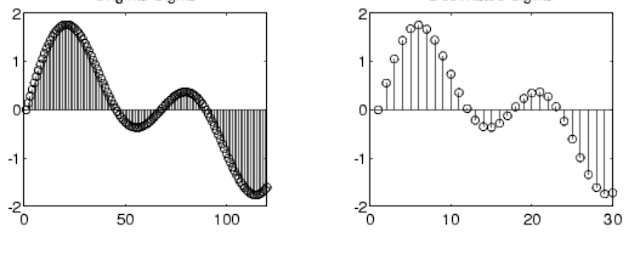Just a little language stuff regarding Officer Chauvin, formerly of the Minneapolis Police Department. The word "chauvinist," commonly meaning one who condones sexist actions and attitudes, is derived from "chauvin," a French word that was in turn coined from the name of Nicolas Chauvin. Chauvin was a notoriously bellicose and belligerent hyper-nationalist who was a prominent figure in the French First Republic. A "chauvin" in French is an excessively patriotic person. Nicolas Chauvin was a busy finger-pointer in the Reign of Terror, a period in France of post-revolutionary gusto that led many free-thinking newspaper editors, political rivals, private citizens and more up the guillotine steps. Chauvin.
The Grammar Dance will appear occasionally, and will seek to illuminate some language oddity, or perhaps unbutton some thorny grammatical or usage quirk embedded in our English language. These entries will be brief and easily digestible, and I hope they will become part of your reading.
Friday, May 29, 2020
Thursday, April 2, 2020
"Decimate" is a metaphor built into a word
The word “decimate” in its most literal sense means to reduce by a factor of ten. “The previous record of initial jobless claims was decimated by this week’s statistics.” After the recession that followed the housing collapse of 2008, initial jobless claims totaled around 695,000. That record was eclipsed tenfold this week with initial jobless claims totaling around 6,648,000.
Practically speaking, the word “decimate” is used metaphorically almost every time it is invoked. Even in the above example, while eerily close to being exact, the new initial jobless claims figure doesn’t quite decimate the old record. “Decimate” has at its root a mathematical expression, and mathematics is predicated on precision. While this week’s initial jobless claims number doesn’t precisely decimate the old record, it dwarfs it to a rate that makes the use of “decimate” perfectly appropriate here.
Were its usage restricted only to matters of moving the decimal point to the left (notice the identical root word in “decimal”), it would hardly get used at all. It’s perfectly acceptable to use “decimate” in the context of “by a large amount,” and in most dictionaries, indeed serves as the primary definition.
Tuesday, September 17, 2019
He/she, they/them. What's in a pronoun? A lot.
The first time a request for the they/them pronoun was made
to me was at a lunch counter in Oakland just last year. I was visiting a friend
and he took me to a diner nearby his place of business where the person who
waited on us was a young man, ostensibly, but with a feminine personal carriage
and clothing that hearkened an iconic ‘50s diner waitress look. My friend
mentioned in casual conversation that our waiter was a musician, and did so using
the pronoun “he.” Our waiter corrected my friend by saying, “they/them” while
breezing past. This person was presenting exactly down the middle and I
immediately thought to myself, “You know what? They’re right.”
The Oxford English Dictionary this year welcomed into its
infiniteness the usage of “they” and “them” as non-binary gender descriptors
for persons who identify at a sufficient midpoint along the gender spectrum to
prefer it to traditional “he” and “she” identifiers. British vocalist Sam Smith
recently requested on Instagram that fans, interviewers and the rest of the
world honor a preference of “they/them” to refer to Smith. “After a lifetime of
being at war with my gender I’ve decided to embrace myself for who I am, inside
and out,” they wrote.
Do you see how easy that was? They wrote. It’s a little odd,
admittedly, and does take some getting used to. I am a language and usage
traditionalist, and my general viewpoint is that there has to be a good reason
for accepting new words and usages. Well, unlike the now welcome misuse of
“literally” and the fall of the proper pronunciation of “nuclear,” here is an
actual good reason for a shift in the language.
This is a maligned and marginalized segment of society that can
encounter sustained environmental hostility and sudden hostility in common
daily encounters. They are a misunderstood and oppressed demographic, and using
the proper pronoun (as far as they are concerned) telegraphs a measure of
support. It can even be fairly considered an expression that the transgender
person is in a safe environment. There is a great loveliness to replacing “he”
or “she” with “they/them” for people who identify as non-binary. I have
embraced the change wholly and recommend against the stodgy in this case.
Sunday, September 9, 2018
Ted Cruz' Silicone Problem
At a campaign rally in Humble, Texas yesterday, Ted Cruz said of the Texans who support his challenger Beto O’ Rourke, "they want us to be just like California...right down to tofu and silicon and dyed hair....not on our watch.” Ted’s wife might have some grumbling words for him about her own Olay stash, and Texas’ many soybean farmers might not appreciate tofu’s disparagement, but the word I’d like to focus on is “silicon.”
I have watched the video and that’s what he said, though it is obvious he was aiming for “silicone.” Silicone is a synthetic polymer that has myriad uses in electronics, medicine, construction and other applications, but its popular familiarity in an easily titillated America lies in its use as breast implants. It is often confused with “silicon,” which is what Cruz has done here. Silicon is much harder and more brittle than silicone, and is a critical component in the manufacture of computer chips, hence the term “silicon valley,” a nickname for the southern San Francisco bay area where much of America’s high technology development occurs. There being no colloquial Texas pronunciation resembling "silicon," it is safe to say Cruz committed this common error.
It being a common error, you might regard my pointing it out here as finicky, but Cruz is a Harvard-trained debate star and a professional communicator, so I think it fair. One literal way to interpret his utterance is this: “There is NO WAY Texas will invest in high tech…not on our watch.” If you are inclined to forgive it as mere mispronunciation, its redux is thus: “Why spend money on fake boobs when you can elect a real one?”
Wednesday, August 29, 2018
Ron DeSantis has a monkey on his back.
Not to comment on Ron DeSantis’ metaphorical monkey
business would be ignoring the 800-pound gorilla in the middle of the room. The
Twittersphere and other platforms went bananas today when they heard DeSantis warn Florida voters
not to “monkey this up” by electing his African American opponent, Andrew
Gillum. I think his critics are up a tree with this one, as this usage has
clearly thrown a monkey wrench into DeSantis’ campaign plans. It was a mistake,
not a dog whistle. Dog whistles are usually precisely that—hard to hear, whereas “monkey
this up” is about ten degrees south of the N-word. There is no phrase “to
monkey up” in any kind of American slang. He was aiming for “muck up” and he
misspoke. That said, malapropisms don’t often come from nowhere. It is easy to
imagine the M-word making the rounds in meetings among close associates of a
Florida candidate who is a monkey-see, monkey-do for the Trump administration.
The opinion call from this desk is that DeSantis' use of the phrase, “monkey
this up,” was not an intentional dog whistle to white voters. However, his
having ceded a few sentences earlier in the speech that Andrew Gillum was
“articulate” may bear a closer look on those grounds. Dog whistle. A
little hard to hear.
Friday, July 20, 2018
"Tape," like "film," is an anachronism.
My admiration for the resiliency of the word
"tape" knows no measure. Very little audio record-keeping is
"taped" these days. It is recorded certainly, it is captured, but not
taped.
If you peruse today’s comment boards and even news headlines, you’ll read about the “taped” conversations between Cohen and Trump.
Unless it was magnetically captured to a tape medium, which I doubt it was, it
wasn’t taped. People familiar with Cohen’s work might not be shocked if it
indeed were found on a microcassette, but this article refers to “tape” more
generally.
The Watergate tapes were on actual tape. For recording one’s
own phone calls in the 21st century, however, it is almost always
done with a tap off the phone into either a recording program or a handheld
digital recorder. But nothing else sounds as cool as “tape,” so “tape” it is.
My hat is off to "tape," a word that managed to outlive itself.
My hat is off to "tape," a word that managed to outlive itself.
Sunday, February 18, 2018
"Proughts" is hereby coined as a conflation of "thoughts" and "prayers."
Due to the high volume of mass shootings and the attendant need for large quantities of thoughts and prayers, the word "proughts" (pronounced "prots") has been coined as a means of expressing "thoughts and prayers" more efficiently in a single word. It is estimated this will result in a 20% to 30% increase in thoughts and prayers for the victims and their families.
#proughts
#proughts
Subscribe to:
Posts (Atom)






